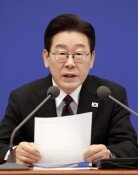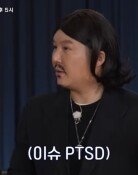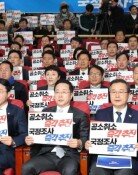New Rationing System in NK Complicates Aid
New Rationing System in NK Complicates Aid
Posted March. 06, 2007 07:15,
Unification Minister Lee Jae-joung said on Monday that the South Korean government will send rice to North Korea around late May, leading to forecasts that food aid to the North will resume. It is worth taking a look at how food aid will be divided and to whom it will go to.
Experts on North Korea say that the rationing economy is kaput, and that what little food aid the North receives ends up being divided among the authority members of the Workers Party and the military.
According to North Korean contacts, there have been many changes in the Norths rationing economy. These days, executives of the Workers Party might be left with no aid, while a laborer might end up with plenty.
This phenomenon resulted from North Koreas accelerating economic meltdown over the past few years and the end of equal distribution. Experts say that in the place of equal distribution is a new order that is ruled by those with authority.
The Old Rationing Economy-
The socialist rationing economy of the past used to be strictly based on the age and number of family members. Eight hundred grams would be rationed to laborers, 500 grams to students, and 300 grams to the elderly and feeble. The system still exists today, but it is not practiced. Timing and situation come into play these days.
The rationing system differentiates farmers working in co-ops, farmers working in government-run farms, and military personnel.
Co-op farmers receive food and money when the harvest is over. Though they received their share in bulk, their wages were not so different from what farmers working on government farms received.
Farmers in the co-ops work in groups ranging from 10 to 20 members and are evaluated everyday by the group leaders. The annual salaries the farmers receive are based on these evaluations. This system does not motivate farmers to work harder, however. Purchasing power of money does not amount to much, and additional pay is not a motivation. Food is not correlated to the evaluation, so it does not motivate farmers either.
Laborers in the city and government-run farms as well as Workers Party members receive rations based on days worked. Their rations are cut if they do not show up for work. Military personnel received a fixed salary.
New Rationing System Based on Authority-
The old rationing system started crumbling in the mid 1990s. Till then, the national food board collected grain from the co-op farms to distribute to laborers and the military. If it was not enough, the Norths food agency imported grain.
The amount of grain collected waned each year. One reason for this was because farmers who experienced major famines doled away food for themselves and worked on their own private farms. The North Korean government was too busy idolizing Kim Jong Il and his father Kim Il Sung to import grain for its citizens.
The co-op farms that evaluated its farmers emerged after the economic reform of July 1, 2002. The reform was aimed at motivating the farmers to work harder.
Still, there was not enough food to go around. The national food board supplied the military and the defense industry with food while it neglected others. Soldiers did not receive the 850-gram standard, and some suffered from malnutrition.
This is what made the military, the defense industry, exporting departments in the Workers Party, and other strategic industries to argue their importance and pressure the national food board.
This is what gave way and led to the current ration system based on power. This system still exists today, although the food supply has improved after the turn of the millennium.
When food supplies from abroad make it to the ports, government organizations with authority such as the military intercept them right away. To deceive the international society, military vehicles have fake license plates for the ordeal. After the military takes its share, other organizations next up in the food chain take their share.
The organizations with the least power are provincial governments. Even the Workers Party executives of provinces cannot receive rations without being rewarded its share from above.
On Kim Jong Ils birthday on February 16, citizens of Pyongyang received a months worth of ration, but citizens of provincial areas received nothing.
Coal miners in the countryside sometimes receive enough rations to feed the whole family. This is because entities that own the coal mines are part of the Workers party that boasts a big share of exports.
Experts say that in order for all citizens to receive some of the aid, food supplies should be sent to the North in one transaction so more citizens have a chance of receiving some aid. Select few organizations hog the supply if given little by little, but provincial areas have a chance to receive aid if the country receive one big food supply.
Rations Have No Impact on Wealth-
If citizens receive rations, they save money spent on food. But the rations keep them away from private businesses, because they have to go to work for the rations. The average monthly salary of North Korean workers only amounts to three kilograms of rice. This is why another family member must run a business to afford other basic goods.
This is also why most workers cannot depend on rations. The only organizations that can look to the rations regularly are the military and military-related organizations. It also depends on the amount of foreign aid the government receives. The citizens have to purchase the rest by themselves.
North Korean citizens prefer running their own business to receiving a ration, because businesses yield more money. The worst off are those who have no choice but to show up for work every single day, while they only receive rations several times a year.
The government these days orders its citizens to come to work, citing that it is doling out more rations. This has lead to the deterioration of the living standards of the citizens because it leaves less people running their own businesses.
Executives of the Workers Party have enough money to buy rice and basic goods because they receive kickbacks. Some executives receive both rations and kickbacks.
Aid to the North does not necessarily benefit its people because of all these very complicated matters.
zsh75@donga.com







